Conditions allowing dry ablution
There are certain conditions in which dry ablution is allowed and valid for Muslims. To perform dry ablution successfully one must form the intention first and make sure the rest of the conditions are available.


There are certain conditions in which dry ablution is allowed and valid for Muslims. To perform dry ablution successfully one must form the intention first and make sure the rest of the conditions are available.

There are some conditions that render dry ablution invalid such as the presence of water or anything that invalidates ablution. It also becomes invalid if the reason for it no longer exists such as illness.

To perform dry ablution one must first have the right intention and say “in the name of God” then strike the ground with his both hands, blow the dust off them and wipe his face and hands up to the wrist, only one time.

Impurities refer to all foul materials. It should be removed by washing it off. In case of dogs impurities it should be washed 7 times one of them with dust. Other rules apply on different sources of impurities.

Menses or Hayd is the natural blood discharge from women uterus through her vagina. It could start at the age of 9 and stops by the age of 50. It usually lasts for 6 to 7 days and it requires a bath at the end “ghusl”.
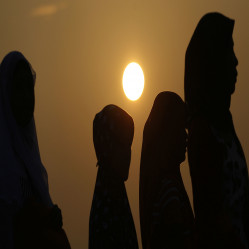
Women in menstruation are forbidden from having penetrative sexual intercourse, prayers, fasting, holding Qur'an, performing Tawaf, reciting Qur'an, staying in a mosque, and getting divorced.
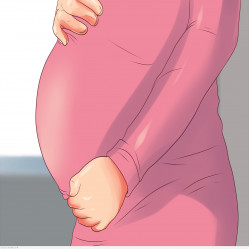
Postnatal discharge usually lasts for 4o days and women are not allowed to pray or fast during this duration. It doesn’t have a minimum duration but if she is clean before 40 days she can take a bath and offer prayers.
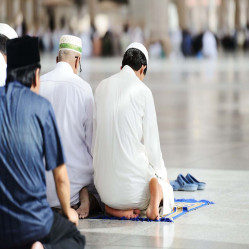
Muslims are asked to meet Allah five times a day through performing Salah or the Islamic Prayers. These five meetings are the main factors for the love of Allah to be granted a happy life and Jannah.

Being a caller to prayer is an honor that shouldn't be granted to anyone. The one who recites Adhan and iqamah to remind all Muslims of their prayers must be honest, sane adult, trustworthy, and have a loud voice.

One of Muslims' favorite sounds should be the sound of Adhan. It is the reminder for one to perform prayers and once one hears it, he should repeat after it except for one phrase. Learn what you should say exactly.

Prayers are the duties of every Muslim with the following conditions: sanity, attaining puberty, purification, appropriate time, covering Awrah (private parts), facing Qiblah, and forming the intention.

Standing up, Allah’s glorification, reading Alfatiha, bowing, standing up after bowing, prostration, being still in every rukn, tashahud, salam, are among the 14 prayers’ essentials that cannot be omitted.
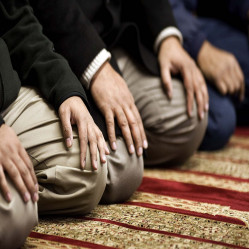
There are eight duties a Muslim must obey to in prayers, like the glorification. And if they are deliberately omitted, the prayer is invalid. If it is forgotten, it is compensated for by two prostrations at the end.
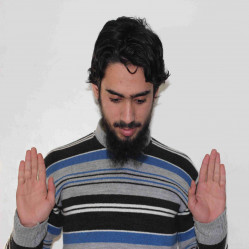
There are some recommendations that Muslims should keep in mind when they pray. These recommendations are actions and words that the prophet (PBUH) has performed and his companions followed his footsteps.
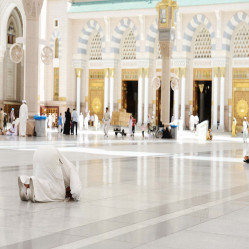
Prayers are all Muslims' duty. But prayer is invalid in some cases like; invalid purification, loud laughter, or deliberately changing or adding a rukn. Learn what to avoid in order not to invalidate the prayer.

During prayers, one has to avoid some acts that are discouraged in a prayer. Those acts such as; moving too much, reciting only the Fatha in the first tow rakaa, closing the eyes, and other gestures discussed below.

In addition to the honor God has granted Muslims through prayers, he has given them the honor of Congregational prayer. Congregational prayer is a duty for Muslims that Allah and his prophet (php) have made clear.
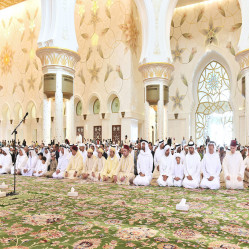
Friday prayer is a duty on all male Muslims. Those who are free, sane, attained puberty, not travelling, have no excuse to miss it. It is performed at the time of Zuhr prayer and it is invalid without a sermon (speech).
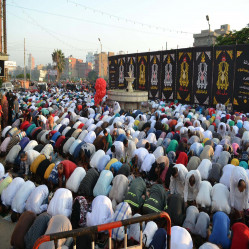
Muslims celebrate two Eids a year. They start their Eid by performing a prayer that is one of the most favorite acts to them and they consist of two rakaa and a speech that reminds them of the Islamic ethics.
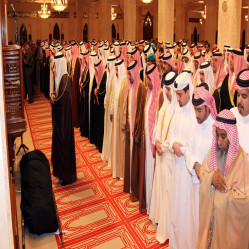
Janazah prayer is a collective duty. It is performed with the presence of the body of the deceased person in front of the praying people. It consists of standing up, four glorifications, and reciting Al Fatha.
Sorry, You must be logged in. Use link below to log in or sign up Sign in
